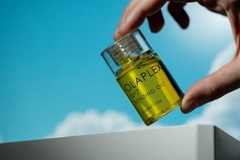Nigeria bans raw shea nut exports to boost domestic processing and global market share

Nigeria’s government has banned the export of raw shea nuts to help the country become a global supplier of refined shea butter and other skin care ingredients. The ban will take effect immediately and be sustained for six months, after which it will be reviewed.
“The ban will transform Nigeria from an exporter of raw shea nut to a global supplier of refined shea butter, oil, and other derivatives,” said the VP of Nigeria, Kashim Shettima.
Shettima explained that the decision was not an anti-trade policy but a “pro-value addition policy designed to secure raw materials for our processing factories.” The move aims to boost income and jobs for rural workers.
The shea market has a strong foothold in the personal care industry. Shea butter is an essential raw ingredient for skin and hair care products such as shampoos, conditioners, and moisturizers.
Bringing it home
Nigeria follows other West African countries, such as Burkina Faso, Mali, Togo, the Ivory Coast, and Ghana, that have banned or restricted the export of shea over the past two years.
According to the UN, Nigeria is the top shea nut-producing country, followed by Mali, Burkina Faso, Ghana, Côte d’Ivoire, Benin, and Togo.
Shettima said Nigeria accounts for 40% of the world’s shea nut supply but only contributes 1% of the US$6.5 billion global market share in shea products. Authorities said that if the export ban remains in force, it will generate US$300 million in the short term and US$3 billion by 2027.
 The export ban is an effort to transform Nigeria into a global shea butter leader. However, experts have reportedly argued that such efforts must involve more investment to grow domestic industries. Earlier this month, the northern Niger state opened a shea butter processing plant that officials described as one of Africa’s largest.
The export ban is an effort to transform Nigeria into a global shea butter leader. However, experts have reportedly argued that such efforts must involve more investment to grow domestic industries. Earlier this month, the northern Niger state opened a shea butter processing plant that officials described as one of Africa’s largest.
“The ban seems to suggest that the government has identified a supply-gap issue, but an export ban does little actually to lock in current in-country production solely for Nigerian processors,” Ikemesit Effiong, a partner at SBM Intelligence, a Lagos-based risk advisory firm, told The Associated Press.
Nigeria’s regulatory move contradicts President Bola Tinubu’s trade policy, which positioned the country as a free-market economy. It previously removed subsidies on essential commodities such as fuel and electricity.
Shea-derived ingredients have been and continue to be a staple in the beauty industry.
“It is one of the most important bases for skin care, especially now that a lot of people are tilting toward nontoxic skin care,” said Zainab Bashir, an Abuja-based dermatologist, as reported by The Associated Press.
Earlier this year, we spoke to the Global Shea Alliance about its partnership with EOS Products and non-profit Water for West Africa to empower women shea processors in Northern Ghana and Côte d’Ivoire. The initiative works to improve access to clean water, quality infrastructure, sustainable livelihoods, and equitable value chains.













